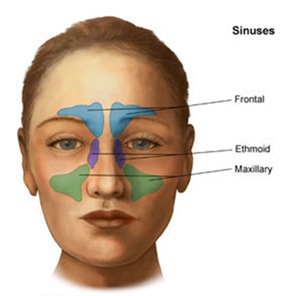Calcarea Phos is known to most mothers as a ‘teething supplement,’ and the fact that it is a homeopathic medicine with its particular healing properties is often overlooked. In the practice of homeopathy, Calcarea Phos is majorly indicated for specific dentition issues. It is not a ‘cure all’ for dentition issues and should not be used as one. Its blatant use as a supplement is an abuse of homeopathy.
When Should Calcarea Phos be used?
It offers significant help in cases of delayed teething, slow teething, and retarded dentition. A child’s first teeth usually appear around the age of six months, and all the 20 primary teeth (also known as ‘milk teeth’) appear by the age of three. However, these are ballpark numbers as every child meets the milestones at a different pace. There can be a delay beyond six months for the first teeth to erupt.
An approximate timeline of the appearance of teeth is as follows:
6-10 months: Lower central incisors.
8 to 12 months: Top central incisors.
9 to 13 months: Top lateral incisors.
10 to 16 months: Bottom lateral incisors.
13 to 19 months: First upper molar.
14 to 18 months: First lower molar.
16 to 22months: Upper canines.
17 to 23 months: Lower canines
23 to 31 months: Second lower molar.
25 to 33 months: Second upper molar.
Delayed teething is a cause for concern if a child shows no signs of teething by the age of 1. The long-term effects of late teething are an inability to chew food properly, and the possibility of permanent teeth growing in a crooked manner. Some children grow a double row of teeth because the permanent teeth begin to grow in front of the milk teeth, resulting in two rows of teeth. The teeth remaining beneath the surface of the gums may lead to infection around the crown that can spread to surrounding tissue.
In such cases of delayed dentition, Calcarea Phos can be safely used to promote teething. It can also be used to hasten the process of eruption of teeth from the gums in cases of slow teething.
Calc Phos for Irritability in Children During Teething
Irritability, incidents of diarrhea during dentition, and excessive wind in the abdomen are some other dentition-related issues in children where Calcarea Phos can prove to be useful.
Most babies begin teething around six months of age. Teething might not cause any trouble in many babies while in others it can be troublesome. In the latter cases, the baby may suffer from excessive irritability, crying, swelling of gums, tender gums, flushing of one cheek, increase salivation, putting fingers and other things in mouth, chewing things, and poor feeding. Fever and diarrhea may appear (though not directly linked with teething). Teething children tend to put various objects in the mouth, making them vulnerable to catch an infection that brings on fever and diarrhea.
In addition to the above, Calcarea Phos is also considered in cases where the teeth tend to decay rapidly (as soon as they appear).
Key Indications of Calcarea Phos for Teething:
Calcarea Phos is a biochemic Schuessler tissue salt (named after Dr. Wilhelm Heinrich Schuessler), primarily used to restore mineral deficiencies that are causing disorders in the body. Its common name is ‘calcium phosphate,’ and it is prepared from dilute phosphoric acid and calcium hydroxide through the process of potentisation.
Calcarea Phos is most commonly recommended in 6 X potency for the following dentition-related concerns:
– Delayed teething
– Slow or retarded teething
– Rapid decaying of teeth soon after they appear
– Excessive irritability during teething
– Diarrhea and gas during dentition
Note:
Homeopathic medicines are prescribed as per the “law of similia.” It means that homeopathic medicine is given by matching the symptoms of a person with the symptoms indicated for a particular remedy. The homeopathic medicine that closely matches the symptom picture of the person should be prescribed for best results. The same law is applicable when it comes to using Calcarea Phos.


 Chronic sinusitis is a condition in which the sinuses inside our skull become inflamed for months and years together. This condition can considerably reduce ones quality of life. Patients suffering from chronic Sinusitis complain of difficulty in breathing from nose, headaches, pain and tenderness in the face.
Chronic sinusitis is a condition in which the sinuses inside our skull become inflamed for months and years together. This condition can considerably reduce ones quality of life. Patients suffering from chronic Sinusitis complain of difficulty in breathing from nose, headaches, pain and tenderness in the face.





